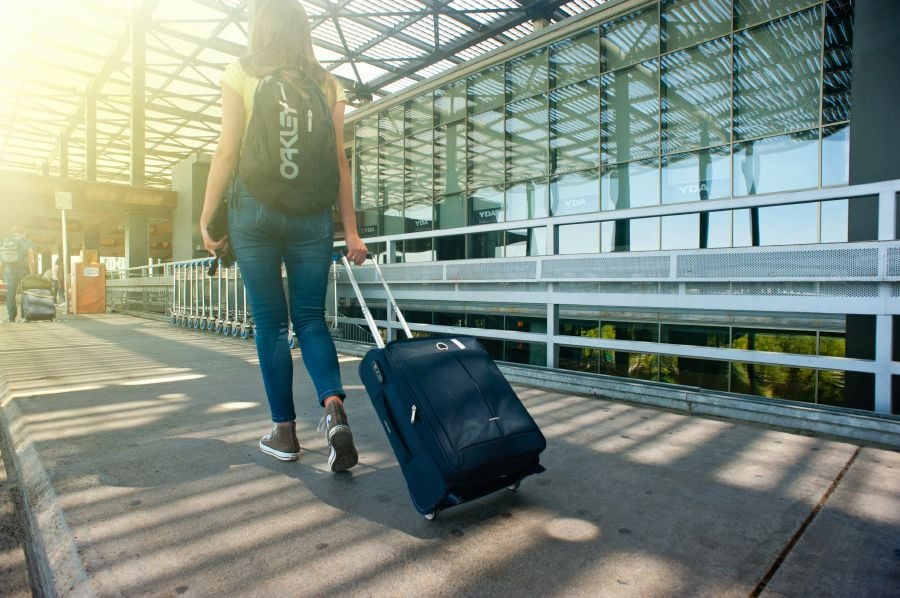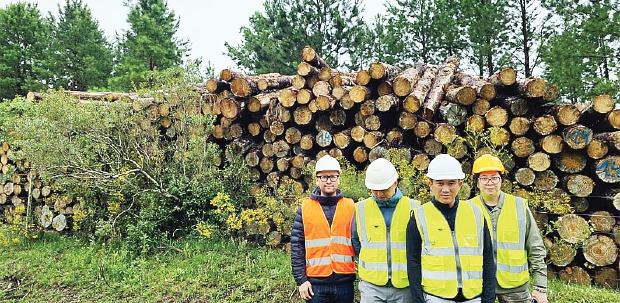KUALA LUMPUR: Businesses are the gateway to consumers, whose needs are ever-evolving in this dynamic era of travel.
The chain that binds tourism in Southeast Asia comprises small and medium-sized enterprises (SMEs) and micro-SMEs (MSMEs). They are the beating heart of the region's economy and key to meeting customer demand.
SMEs and MSMEs make up nearly 99 percent of all businesses here and contribute to 85 percent of all jobs across the region, contributing to nearly half of Southeast Asia's gross domestic product. In Malaysia alone, there are more than 1.1 million MSMEs, accounting for 97.4 percent of total businesses.
As they are intrinsic to the travel sector's success, businesses that undergo digital transformation have the potential to become even more crucial partners that drive economic growth, productivity, and consumer-centricity. The power of digitalisation is clear: it offers opportunities to scale while expanding product portfolios to personalise services.
The digitalisation of SMEs breeds competition, which will bring out the best in businesses in terms of winning customers. In the long run, this will pave the way for a thriving, connected ecosystem that can remain robust in the face of challenges. As such, Southeast Asia tourism must do more to encourage small businesses to embrace bytes for a bigger bite of the cherry that ultimately benefits the entire industry.
Digitalisation never stops
For most businesses, digitalization is not a destination. It is a continuous journey that is necessary for survival and success today. Through digital transformation, SMEs and MSMEs in Southeast Asia can contribute to data-driven decision-making and collaboration within the travel industry while empowering sustainable growth.
The region is on the right track. One of the lasting legacies of the pandemic has been the greater adoption of digital technologies, something that forced a hitherto slow-to-change travel industry to accelerate its online migration. According to a white paper by global digital customer experience solution provider TDCX, SMEs in Southeast Asia have spent US$78 billion on digitalisation initiatives over the last three years.
A common goal for every business today is to do more with less. That is when innovation, the lifeblood of growth, is critical. Leveraging technologies such as artificial intelligence (AI) and the Internet of Things (IoT) has allowed SMEs to explore new business models, develop innovative products and services, and disrupt traditional markets.
One example is travel platforms incorporating AI to enhance strategic financial optimisation. Using algorithms, travel companies no longer have to resort to traditional methods of demand prediction and price optimisation, which could be time-consuming for smaller businesses with limited manpower. AI can also analyse both historical and real-time data, giving businesses access to booking trends that shape travel demand. Travel platforms that incorporate cutting-edge technology at an early stage would gain a competitive advantage.
Tourism stands to win big, especially in Malaysia, which is home to 33 million internet users and has an internet penetration rate of 96.8 per cent. For instance, popular destinations like Penang and Sarawak have launched digital solutions such as the "Welcome to Penang VR" project and the Sarawak Travel Portal and App to promote tourism while also boosting efficiency to serve more consumers.
Malaysia has also embarked on a roadmap that envisions 90 per cent of MSMEs digitalising their business operations by 2025. Such a move helps small businesses reach a more global audience and generate new revenue streams. At the core of this seismic shift are people, as tech-savvy travelers in the region are getting comfortable with, and even open to, revolutionary ways of travel.
Embrace, expand, and grow
These bold steps by SMEs make them well-placed to serve consumers in the new age of travel. The rapid expansion of the region's middle class, with rising spending power, is leading to more consumption. That growth has also enabled the flourishing of Southeast Asia's internet economy. By 2025, Southeast Asia's internet economy is set to double to US$363 billion. Digitalisation must, then, be a matter of when, not if.
A joint study by Yahoo and research firm Milieu Insight of 1,000 Malaysians earlier this year found that 65 percent of respondents wanted to explore as much as they could on holidays. As such, the chance to earn 'brownie points' with customers who want a customized travel plan within seconds should not be underestimated.
But this is not just limited to travel companies. In fact, for businesses where customer satisfaction is non-negotiable, tapping technologies like AI would simply enhance their performances. In Southeast Asia's mammoth economy, where SMEs play a crucial role, an expanded and AI-enhanced outreach has the potential to enable highly targeted marketing—a crucial aspect as the travel industry continues to recover.
Digitalisation remains a tall order
Encouraging digitalisation is the way forward, but that comes with its share of challenges. One significant hurdle is the initial cost of implementing digital technologies, including software, hardware, and training, which can strain the budgets of SMEs. They may also lack the internal expertise, making it necessary to hire or train employees with digital skills.
Here's where government initiatives can be an important crutch that helps SMEs effectively tackle the hurdles of digital transformation. For one thing, partnerships with larger organisations or technology providers can offer valuable guidance and resources during digitalisation; knowledge-sharing is vital for SMEs in navigating the complex processes.
Ultimately, a holistic approach that combines education, financial support, and industry collaboration can empower SMEs to thrive in the digital age while mitigating the challenges they face. When that happens, the travel industry's wings will spread and soar.
The online world is filled with growth opportunities at every corner. But SMEs must take that first step to the next level. Only then will they be able to elevate their products and services, which, in turn, will drive the travel industry to greater heights as we usher in the return of travel.
*The writer is Traveloka president





